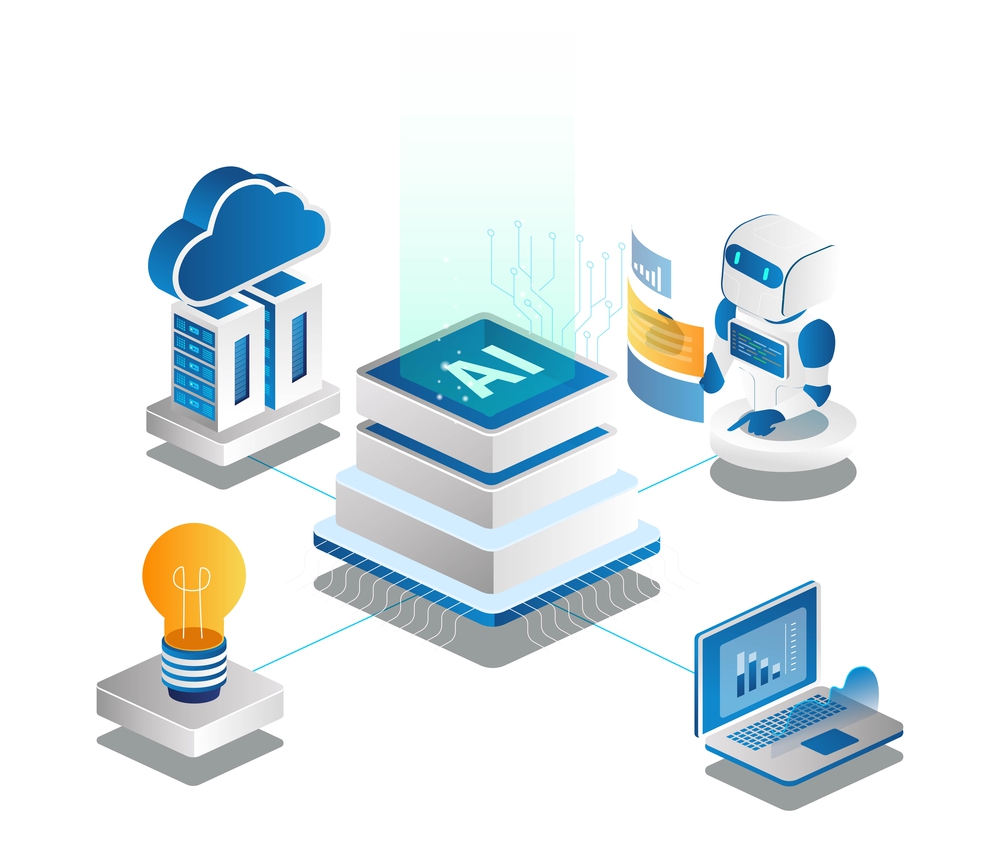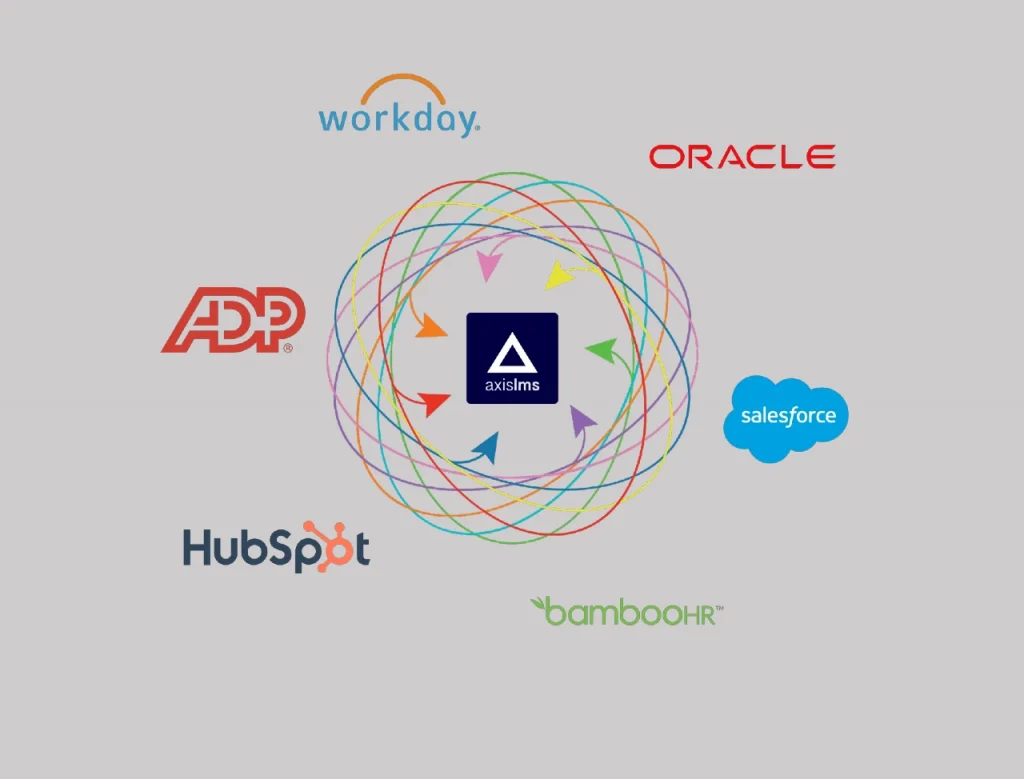Human Resources has always been at the heart of employee development, but the methods for training and engagement are evolving at lightning speed. With workplaces becoming increasingly digital, companies are searching for innovative ways to personalize, streamline, and measure employee learning. This is where AI-Powered Learning Solutions for HR step in.

This blog takes a deep dive into why AI-powered learning platforms are rapidly becoming the cornerstone of modern HR training strategies, how they compare to traditional methods, and what organizations should know before adopting them.
The Shift from Traditional Training to AI-Powered Solutions
For decades, training in HR followed a one-size-fits-all approach. Employees often sat through lengthy workshops, standardized e-learning modules, or classroom sessions with limited customization. While functional, this approach rarely addressed the unique learning needs of individuals.
The emergence of AI-driven learning systems has completely redefined this model. Unlike conventional training programs, AI platforms can track employee behaviors, measure progress in real time, and recommend learning paths tailored to each worker’s skill gaps and goals. This personalization ensures that training is not just efficient but also deeply relevant to every participant.
What Exactly Are AI-Powered Learning Solutions for HR?
At their core, AI-powered platforms combine machine learning, natural language processing, and predictive analytics to design smarter training experiences. In the context of HR, this means the system can:
- Recommend personalized courses based on job roles and past performance.
- Provide real-time feedback and assessment to learners.
- Predict future skill gaps within teams or departments.
- Automate administrative tasks like tracking compliance certifications.
- Use chatbots or virtual assistants to answer employee learning queries.
The result is a system that not only trains employees but actively supports HR teams in making data-driven decisions about workforce development.
Why AI-Powered Learning Solutions for HR Are Transforming the Future
1. Personalized Learning at Scale
Personalization has become the gold standard in employee learning. AI can analyze massive amounts of data, from performance reviews to quiz scores, and then build custom training pathways for each employee. Instead of bombarding everyone with the same generic modules, AI ensures that employees spend time on the skills most relevant to their roles.
This is especially powerful for large organizations where individual attention is difficult to provide manually. With AI, personalization becomes scalable, saving both time and resources.
2. Data-Driven Decision Making for HR Leaders
One of the most compelling features of AI-powered tools is the ability to deliver actionable insights. HR leaders can use these systems to identify which training programs deliver the highest ROI, spot trends in workforce skills, and proactively address gaps before they become critical.

For example, if data shows that a significant percentage of employees struggle with cybersecurity awareness, HR can prioritize advanced training modules for the entire department. This kind of predictive analytics was nearly impossible with traditional training methods.
3. Improved Employee Engagement and Retention
Employees today crave engaging, interactive learning experiences. AI-powered platforms often incorporate elements such as gamification, microlearning, and adaptive assessments. These approaches keep employees interested, increase knowledge retention, and reduce training fatigue.
Studies consistently show that engaged employees are more likely to stay with a company. By offering cutting-edge training experiences, organizations not only build skills but also strengthen their employer brand.
4. Efficiency and Cost Savings
Traditional training programs require significant investment in instructors, printed materials, venues, and travel. AI solutions eliminate many of these expenses by offering fully digital, self-directed training pathways.
Additionally, by automating administrative tasks like tracking completion rates or generating compliance reports, HR teams can focus more on strategy and less on paperwork. Over time, this leads to measurable cost savings across the organization.
5. Continuous Learning for the Digital Workforce
The shelf life of professional skills has shortened dramatically. According to industry reports, many technical skills become outdated in less than five years. AI-powered systems help organizations keep pace by continuously updating content and nudging employees toward new learning opportunities. This ensures that workers remain adaptable and competitive, which is crucial in industries undergoing rapid technological change. For example, some companies are now using AI video tools to create dynamic training modules that engage employees more effectively than static materials. Features such as the ability to add text to video make training materials more interactive, while a video translator ensures that the same content is accessible to global teams in multiple languages.
How AI-Powered Learning Solutions for HR Compare to Traditional LMS
Traditional hr learning management system tools often focused on delivering static content, tracking completion, and ensuring compliance. While functional, these systems rarely offered meaningful insights into the effectiveness of training.
AI-powered solutions, by contrast, act as an intelligent partner. They not only deliver content but also assess performance, recommend future learning, and measure impact on organizational goals. This makes them far more dynamic than legacy systems.
Use Cases of AI in HR Training
- Onboarding: AI tools personalize onboarding by adapting training content to the new hire’s role, experience level, and preferred learning style.
- Compliance Training: Automating reminders, assessments, and progress tracking ensures that compliance training is seamless.
- Leadership Development: AI can identify employees with leadership potential and recommend advanced modules tailored to their growth path.
- Upskilling and Reskilling: AI predicts future skill demands, helping employees prepare for evolving job requirements.
The Role of AI-Powered Learning in Different Business Sizes
For Small Businesses
Even smaller organizations can benefit from AI learning tools. In fact, the best lms for small business often includes AI-driven features like automated course recommendations and progress tracking. These help smaller HR teams deliver impactful training without requiring a large administrative overhead.
For Large Corporations
Enterprise-scale adoption often focuses on integrating corporate lms systems with AI to deliver unified, global training solutions. With thousands of employees across different regions, AI ensures consistency while still offering personalization.
Key Features to Look For in AI-Powered Learning Platforms
Choosing the right AI-powered training solution is not just about adopting the latest technology. It is about finding a tool that aligns with your company’s culture, goals, and workforce needs. HR leaders should carefully evaluate platforms based on the following key features:
1. Adaptive Learning Algorithms for Personalization
Every employee learns differently, and AI’s real strength lies in its ability to create individualized learning experiences. Adaptive algorithms analyze learner performance, engagement levels, and even preferred formats (video, quizzes, articles) to deliver the most relevant training content. This ensures that employees focus on areas where they need improvement instead of wasting time on topics they already know.
2. Seamless Integration with HRIS and Payroll Systems

Training does not exist in isolation. For maximum efficiency, your AI-powered platform should connect with your existing HR infrastructure such as HRIS, payroll, and talent management systems. This integration streamlines data management, makes reporting easier, and ensures learning is directly tied to employee performance records.
3. Real-Time Analytics and Reporting Dashboards
AI-driven platforms provide HR leaders with powerful dashboards that go beyond completion rates. They highlight learner progress, engagement patterns, and skill gaps. Real-time insights help HR teams quickly measure the effectiveness of training programs and adjust strategies before problems escalate.
4. Gamification and Microlearning Support

Modern employees expect training that is engaging and digestible. Gamification elements such as points, leaderboards, and badges encourage healthy competition and boost motivation. At the same time, microlearning modules deliver short, focused lessons that fit seamlessly into busy work schedules. Together, these features keep learners engaged while improving retention.
5. Multi-Device Accessibility and Mobile-First Design
Workforces today are mobile and often spread across different locations. An effective AI-powered learning platform should be device-agnostic, enabling employees to learn from desktops, tablets, or smartphones. Mobile-first design is especially crucial for frontline or remote workers who rely heavily on phones to access learning materials.
6. AI-Powered Chatbots for On-Demand Learner Support
One of the standout features of modern platforms is the use of AI chatbots. These virtual assistants provide 24/7 support by answering learner queries, suggesting additional resources, and guiding employees through their learning paths. This creates a smoother, more interactive experience without overwhelming HR staff with repetitive questions.
7. Content Curation and Recommendations
The best platforms do not just store content. They curate learning resources from multiple sources, including internal materials and external databases, and recommend them based on employee needs. This ensures continuous exposure to high-quality, relevant learning opportunities.
8. Scalability and Customization
As your organization grows, so will your training needs. Look for systems that can scale easily to accommodate more users, new departments, or additional features. Customization options also matter, allowing HR teams to align training programs with organizational branding and specific skill goals.
Ethical Considerations and Challenges
While the benefits are undeniable, AI adoption in HR training is not without challenges. Concerns include:
- Data Privacy: Collecting employee performance data requires strict security protocols.
- Bias in AI Algorithms: If not carefully monitored, AI systems may unintentionally reinforce existing biases.
- Change Management: Employees and managers must adapt to new tools, which may face resistance at first.
To address these, HR leaders should focus on transparency, involve employees in the implementation process, and work with trusted vendors that comply with international data standards.
The Human Touch in AI-Powered Training
A common fear is that AI will replace the human element in HR. In reality, AI should be viewed as an enabler, not a replacement. While AI handles repetitive tasks and personalization, HR professionals remain vital in mentoring, coaching, and fostering emotional connections.
Successful organizations strike a balance between technological innovation and the empathy-driven roles that only humans can fulfill.
Future Outlook: Where Is This Heading?
As AI continues to advance, future training systems are expected to include:
- Voice Recognition: Natural language learning assessments using voice interactions.
- Virtual Reality (VR): Immersive, AI-powered training experiences.
- Predictive Career Pathing: AI suggesting not just skills but potential career growth opportunities for each employee.
- Hyper-Personalization: Systems that adjust in real time based on an employee’s mood, pace, and feedback.
The possibilities are endless, and HR departments that adopt these innovations early will enjoy a significant competitive edge.
Conclusion
The workplace is evolving, and so are the methods of training and employee engagement. AI-Powered Learning Solutions for HR are not just a passing trend but a transformative force shaping the future of work. By offering personalization, efficiency, and actionable insights, these systems address the limitations of traditional training while empowering HR teams to focus on what truly matters: building strong, adaptable, and future-ready workforces.
For organizations large and small, the question is no longer if they should embrace AI-driven training but how quickly they can integrate it into their learning strategies. Companies that take the leap will not only see better skill development and retention but also foster a culture of continuous growth that keeps them ahead in an ever-changing business landscape.